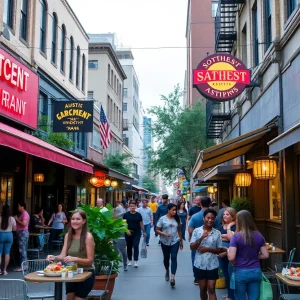Zoox Self-Driving Car Company Sets Its Sights on Austin for Testing
The cityscape of Austin, Texas is about to get even more interesting. Zoox, an automated transportation company, has announced plans to begin testing its self-driving vehicles within the city this summer. The new kid on the block, Zoox will deploy its fleet to the business and entertainment sectors of Austin and Miami to fine-tune their autonomous machine learning technology.
Austin’s Charms
The company expressed that part of Austin’s allure for testing comes from the city’s unique traffic features, including horizontal lights, wire-hanging traffic lights, train track crossings and its notorious thunderstorms. Alongside this, a driver will remain in the vehicle during this phase. Despite the excitement, it’s essential to note that rides will not yet be available to the public.
Looking Back
However, Zoox is not the first kid on the block. Austin streets have been graced with autonomous vehicles from Waymo and General Motors’ Cruise in the past. Still, concerns about safety and regulation persist, with numerous complaints being logged about autonomous vehicle-related incidents.
Regulation & Safety
The state of Texas has some of the laid-back regulations for automated vehicles compared to other states. Senate Bill 2205, passed by the Texas Legislature in 2017, put the oversight of these vehicles in the state’s hands, rather than local municipalities. Over 50 complaints were lodged against Cruise before they suspended operations due to perceived dangers and potential safety risks.
Looking Ahead
Zoox representatives have reassured residents and city officials about their approach towards launching self-driving cars on public roads. The company has been vocal about its dedication to work in close collaboration with local officials, regulators, and residents to ensure that safety and transparency are maintained.
Engaging the Community
Zoox’s senior director of policy and regulatory affairs Ron Thaniel emphasized the company’s effort to include the community in their plans. Thaniel explained the approach as a gradual scale of operations while working closely with local transportation authorities, regulators, and the wider community. The approach has been described as a “proven model based on full engagement, full transparency, and no surprises.”
Overall, Zoox’s launch in Austin looks like a promising stride in the direction of automated transport. As the autonomous vehicle landscape evolves, it will be exciting to see how self-driving cars reshape urban mobility and transport infrastructure in cities like Austin.









